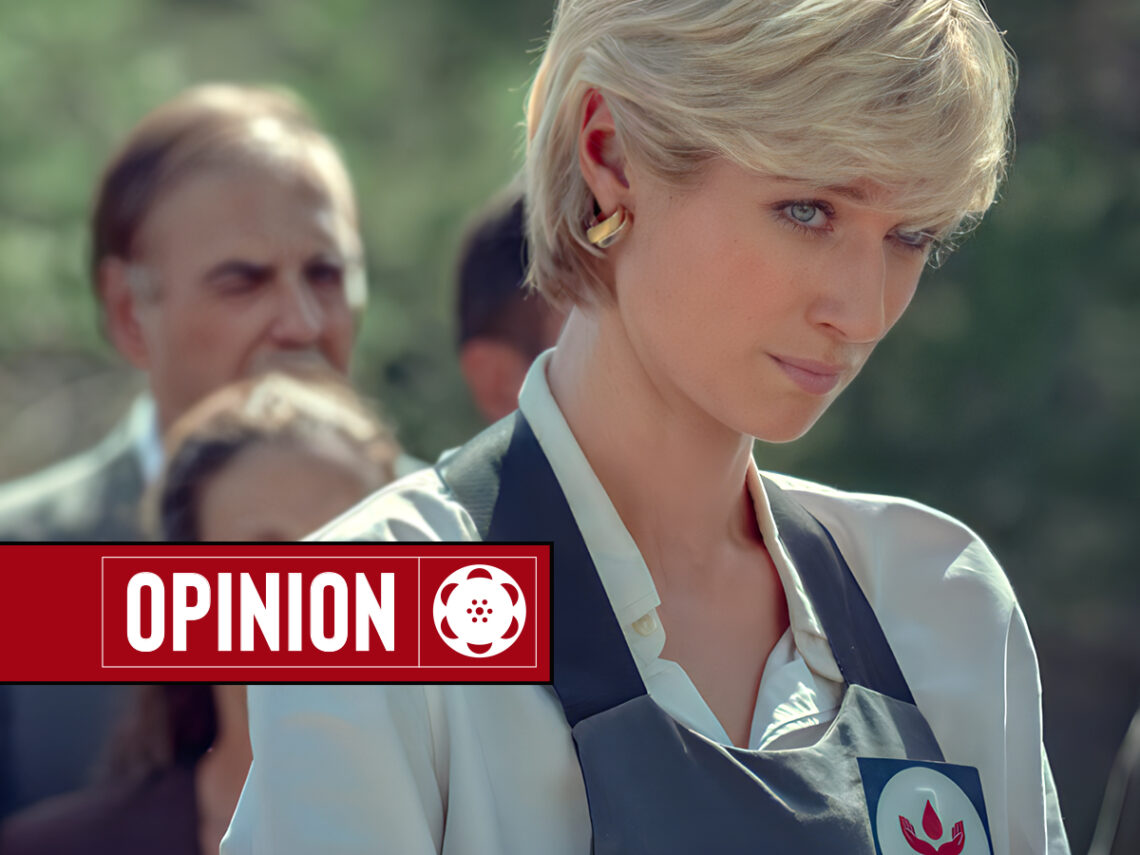The latest instalment of Netflix’s hit series, The Crown, has sparked mixed reactions, particularly regarding the first part of season six. Some argue that the show has deviated into melodrama, especially in its portrayal of Diana, particularly her controversial spectre that hangs about.
These scenes, while arguably mawkish, fit with how dramatic the show has always been. This perspective not only fails to recognise that melodrama has always been a fundamental element of The Crown but also tends to take an elitist approach towards the storytelling style often associated with commercial filmmaking.
Yes, The Crown does become entirely too dramatic with all the spectral visits from Diana and Dodi in their final few moments on-screen. Still, this histrionic portrayal does mirror the mood that was felt by people across the world when news of Diana’s death broke in 1997.
Diana earned the moniker of People’s Princess for becoming a sensationally inspiring woman in front of the public eye. Her rebellious spirit, sticking it to the establishment, to the confines of patriarchy and rigid societal codes put upon women, struck a chord with many. The current generation may have pieced together who she was from the various documentations of her life—from fiction to documentaries—but they might be too young to know the grip she had over people.
She was no Anne Boleyn, who would quietly offer her head to the tweezers as Kristen Stewart’s Diana adamantly spits out in anger in feature movie Spencer. Diana was good-looking, charismatic, politically astute, and intelligent. She was everything the world deemed a perfect woman to be. Yet, she was betrayed by the man she loved for another, beseeched to be silent by those around her, in effect earning her yet another extraordinary group of ardent fans—South Asian and brown moms across the world. In short, people around the world saw themselves in her and were shocked to the core that her life ended so cruelly, so abruptly, just when she seemed to be getting started on a fresh new chapter.
Earlier seasons of The Crown, which primarily focused on the Queen, exhibited a more restrained form of melodrama because of its subject. Queen Elizabeth has always been reticent, politically measured, and somewhat distant; very much the emotional antithesis of Diana, who seemed to wear her heart on her sleeve, always open to embrace those who might need it the most, always ready to fight for what she deemed as morally correct.
Diana and Dodi’s spectres showing up in season six of The Crown is peak melodrama. But not out of character for a show that made an entire episode about the moon landing and put Prince Philip’s existential dread at its centre. This episode, ‘Moondust’, from season three, was lauded by critics for being one of the finest in the series.
In season six, Elizabeth Debicki’s Diana is electrifying in her last few days. After the show manages to deal with her death in as dignified a manner as possible, they transform her phantom into the conscience of the two people who have been most abjectly detested and held accountable for her tragic end—the Queen and Charles. They receive a fantastical and saccharine absolution that never happened in reality. This is a questionable choice but fits the more soothing narrative The Crown has constantly peddled. The show has seldom held the royal family members under any sort of political or humanitarian scrutiny, choosing to present them as regular people caught in the midst of warped and often nefarious circumstances. Suppose it could be so kind to its fairer subjects. Why is it questioned that it is equally generous to its Arab characters—Muhammad and Dodi—two people who received plenty of criticism from the media?
In one scene, as most of the world seemingly mourns only Diana, Dodi’s apparition comes as the voice of reason to his father, Muhammad Fayed, when he cries out, “Is it the fate of the Arabs to always be hated by the West?” Given the situation in Palestine, with most of the Western world seemingly looking the other way, this question feels pertinent, albeit a little on the nose.
The series has always been about catching up with Diana, and doing gracefully by her was always a given. So, in its first part, season six becomes emotionally intense, perhaps a tad more so than before. But The Crown has followed the blueprint of its narrative style into season six, so criticising it for being melodramatic all of a sudden is nothing but peak silliness.
You can read our review of The Crown season six, part one, and watch the trailer here:
